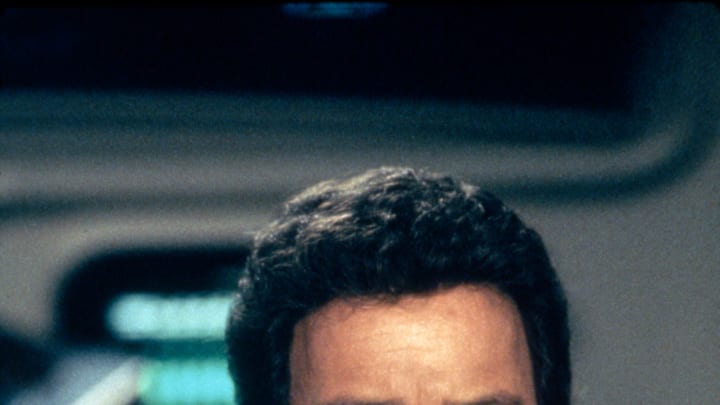The year was 1984. I was a nerdy 13 year old who didn’t know much about Star Trek at the time, although my parents watched the reruns on weekends. I didn’t see Star Trek II: The Wrath of Khan until it aired on cable nearly six years later, along with The Search for Spock. My fascination with Star Trek was on the rise by then, and my monthly fandom newsletter (which came in the mail and bore an image of the Enterprise on the return address label) called TSFS “a movie that could have been tacked onto the Wrath of Khan.”
Is this a fair estimation, or did the Trekkies of my youth get it wrong? Let’s revisit this film on the anniversary of its release, 41 years later, and examine its importance to the Star Trek film franchise.
Skimming the surface
When TSFS landed in theaters, the response was lukewarm at best. The Wrath of Khan had teased Spock’s return at the finale of the film, and fans had waited two years for the continuation of the tale. Famed movie critic Roger Ebert called it a “good, not great, Star Trek film,” but our familiarity and affection for the characters as moviegoers make us forgive some of the movie’s flaws.
On the surface, TSFS is an adventure film in which beloved characters risk it all for the life of their friend, Mr. Spock. Some fans find it an offense to the excellent (yet devastating) Spock death scene in The Wrath of Khan because his resurrection cheapens the storyline. I direct them to the nearest Bible or Lord of the Rings novel for other examples of resurrection that furthered a continuous narrative.
A deeper dive
Common Trekkie discourse tells us that only even-numbered Star Trek films are good while the odd-numbered films are bad. This probably rose from comparisons between Star Trek: The Motion Picture and The Wrath of Khan. Remember, these films were in theaters long before every home had an internet connection, and there were no Discords or message boards for fans to debate (or rant about) what made each film better or worse than the previous.
Now, 41 years later, a second look at TSFS reveals it is more than a film about finding a lost friend at all costs. These characters are now our friends, looking for one of our own. The movie is less about the struggle to possess Genesis and more about familiar characters doing what they do best, from Kirk defying Starfleet to Sulu being quite possibly the coolest helmsman ever to showcasing Uhura’s bravery. (And Chekov? Well . . . we love Chekov.) The movie rests on the familiarity of it all, and that’s why it deserves more respect as a bridge between the television universe we know and love to the cinematic universe that continues to expand today.
